Struggle of choice
As I leave the office for the day, exhausted after hours tethered to the computer screen struggling through articles and code, I begin fantasizing about dinner and an early bedtime. Sweet relief from the endless typing, pondering, calculating, analyzing tasks that consume my daily routines, soon to be granted as I return home.
Dinner is prepared in a haze. My eyes close slowly, kept open only by heat from the stove top’s flames as I carefully warm last night’s leftovers. I can feel my mind fog and my eyelids sag, begging me to rest.
Soon, I promise myself. Soon.
But then, a familiar sensation passes through me — as the clock strikes 8 p.m., I get my second wind. My magnificent mattress no longer seems appealing as my eyes open wide and my limbs shake off the heaviness of near slumber.
Night has begun.
I sail over to my desk to wake my computer. I press the space key, and a loud clack resonates in the silence as my keyboard flares to life, coursing with a myriad of colors. Bright light bursts from the monitors and washes over the room, reinforcing my re-invigorated state.
Ideas begin to cascade over one another — should I begin that literature review? Review a few more edits on my nearly complete manuscript? Brainstorm a new clip about that Nature article? Emails? (Yuck.) Options abound, and I struggle to sort through them for the best choice.
I convince myself that this will be a simple task.
“All right, not a problem. Just need to compare my options a bit. Easy enough!”
What if I start that literature review? Pro: new paper in the works. Con: likely to consume the entire night … maybe best for tomorrow if I wish to get any shuteye this evening.
Perhaps a few more edits on that manuscript? Pro: close in on finishing this current paper. Con: I spent all day on the paper already and may do more harm than good by looking at it again without a fresh perspective.
Brainstorming a new clip? Pro: builds my portfolio. Con: article was deeply technical, so it might take a while just to sort through the jargon. 
Emails? … Just, no.
A bubble of an idea begins to form amid the tangle of thoughts, breaching the chaos, an idea that is dismissed more often than I would like: What about spending time with friends?
As if on cue, my phone buzzes. A group message has come alive, fellow chronic night owls reaching out for companionship and camaraderie. I notice that everyone else is available this evening.
I struggle again. How do I choose? How can I choose?
I reach for my phone, forming a message of regret in my mind: “Sorry everyone, but maybe next time.”
I can rest when I’m done with my work.
A feeling halts me — loneliness. It’s been weeks since I’ve been able to speak with everyone. I’ve begun to feel out of place, burned out by the constant struggle.
I reach my phone and reply: “I’ll be there!”
Night is a special opportunity; the silence makes it easier to see every possibility that could be embarked upon. In the plethora of choices, a rare chance to be with friends is not a choice to be overlooked.
Sincerely,
Chronic Night Owl
Epilogue:
My work as a graduate student brings many challenges, likely shared by others traversing similar paths. I must rapidly digest information and reconstitute it for peers, instructors, mentors, editors, committees … only to restart the process from a different angle. I scramble to pursue my passions (climate advocacy, renewable energy, writing and teaching), to identify and claim who I am and where I want to go, all while trying not to forget the simple things — like dinner (or, more often, lunch) and paying rent. I love the battle for understanding, the tension of projects coming to a crescendo, the joy of collaboration; I equally fear the evaluations, worry about the possible failures and struggle to accept it all.
Yet none of this entirely nourishes my spirit, my drive or my motivation. Sharing time with close friends, forging bonds among kindred individuals and reveling with them in those in-between moments (our beloved night hours) fulfills my desire for support, re-motivating me faster than anything else can.
As I barrel through the turbulent waters of graduate school and career hunting, I know I benefit from keeping my friends at the top of my priority list — even if, sometimes, my academic passions end up fighting them for attention.
Enjoy reading ASBMB Today?
Become a member to receive the print edition four times a year and the digital edition weekly.
Learn moreGet the latest from ASBMB Today
Enter your email address, and we’ll send you a weekly email with recent articles, interviews and more.
Latest in Opinions
Opinions highlights or most popular articles
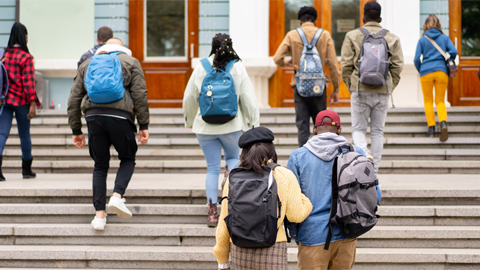
How I made the most of my time as an undergrad
An assistant professor of biology looks back at the many ways he prepared (or didn’t) for his future when he was in college.
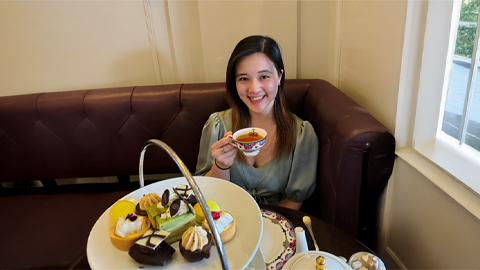
I find beauty in telling stories about giants
Andrea Lius wished she could find a focus for her scientific research — until she realized that what she really liked was talking to other scientists about the focus of their work.
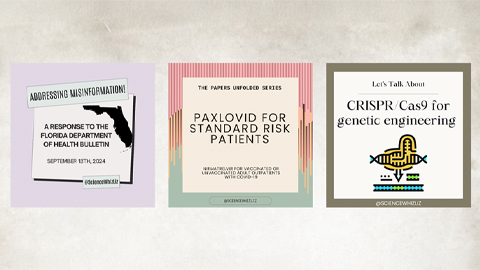
Leveraging social media to share science
Scientist and educator Elisabeth Marnik explains how to combat misinformation, such as the popular myth that drinking bleach will prevent infections.
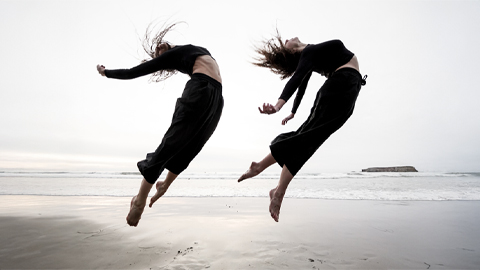
Dancing cancer
A molecular biologist and a choreographer describe how they came to work together.
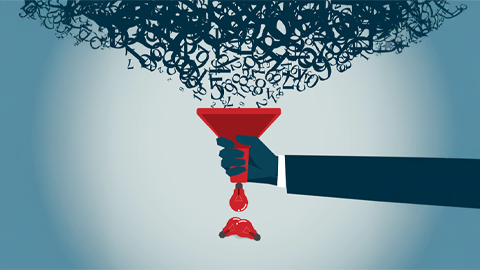
Can AI help people trust scientists?
Scientists use jargon and complicated language to describe their work. Regular folks ‘get it’ more when descriptions are simpler – and think better of the researchers themselves.
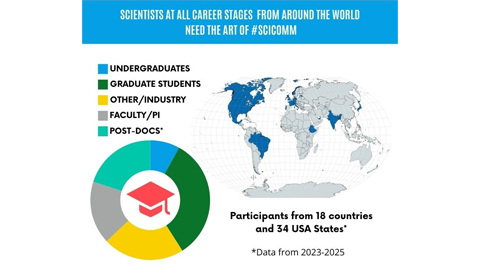
The Art of Science Communication as an infographic
Sometimes a picture is worth a lot of words.

